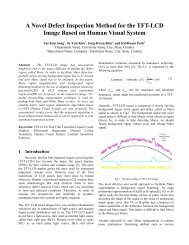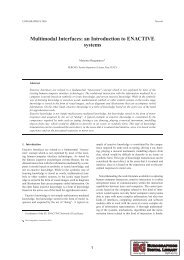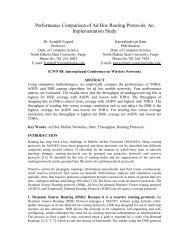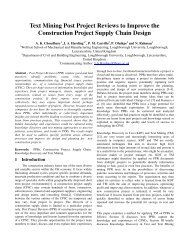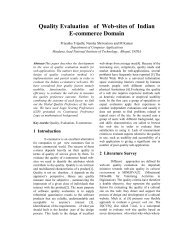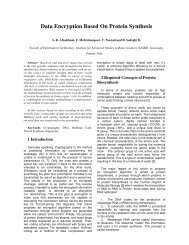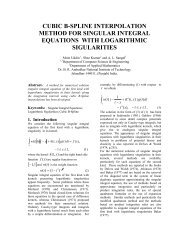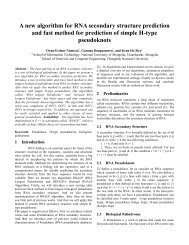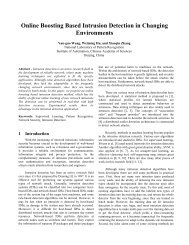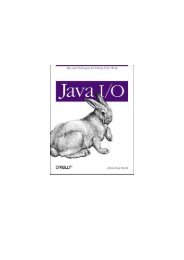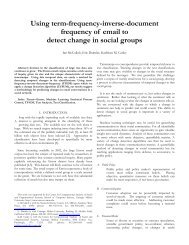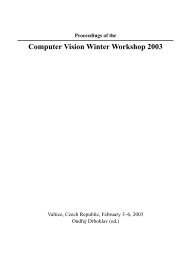O'Reilly - Java Message Service
O'Reilly - Java Message Service
O'Reilly - Java Message Service
Create successful ePaper yourself
Turn your PDF publications into a flip-book with our unique Google optimized e-Paper software.
}<br />
public void setByteProperty(String name, byte value)<br />
throws JMSException, <strong>Message</strong>NotWriteableException;<br />
public long getLongProperty(String name)<br />
throws JMSException, <strong>Message</strong>FormatException;<br />
public void setLongPreperty(String name, long value)<br />
throws JMSException, <strong>Message</strong>NotWriteableException;<br />
public short getShortProperty(String name)<br />
throws JMSException, <strong>Message</strong>FormatException;<br />
public void setShortProperty(String name, short value)<br />
throws JMSException, <strong>Message</strong>NotWriteableException;<br />
public Object getObjectProperty(String name)<br />
throws JMSException, <strong>Message</strong>FormatException;<br />
public void setObjectProperty(String name, Object value)<br />
throws JMSException, <strong>Message</strong>NotWriteableException;<br />
public void clearProperties( )<br />
throws JMSException;<br />
public Enumeration getPropertyNames( )<br />
throws JMSException;<br />
public boolean propertyExists(String name)<br />
throws JMSException;<br />
...<br />
<strong>Java</strong> <strong>Message</strong> <strong>Service</strong><br />
The following code shows how a JMS client might produce and consume messages with<br />
properties that have primitive values:<br />
// A message producer writes the properties<br />
message.setStringProperty("username","William");<br />
message.setDoubleProperty("Limit", 33456.72);<br />
message.setBooleanProperty("IsApproved",true);<br />
publisher.publish(message);<br />
...<br />
// A message consumer reads the properties<br />
String name = message.getStringProperty("username");<br />
double limit = message.getDoubleProperty("Limit");<br />
boolean isApproved = message.getBooleanProperty("IsApproved");<br />
The Object property methods that are defined in the <strong>Message</strong> interface<br />
(setObjectProperty( ) and getObjectProperty( )) are also used for properties, but they<br />
don't give you as much functionality as their names suggest. Only the primitive wrappers<br />
that correspond to the allowed primitive types and the String type can be used by the<br />
Object property methods. Attempting to use any other Object type will result in a<br />
javax.jms.<strong>Message</strong>FormatException.<br />
Given that the Object methods don't really let you do anything new, why do they exist?<br />
The Object property methods provide more flexibility, letting you write clients that don't<br />
hard-code the property types into the application. JMS publishers can decide at runtime<br />
what form properties should take, and JMS consumers can read the properties and use<br />
reflection to determine the value types at runtime. Here is an example of how the Object<br />
property methods are used to set and access properties in a message:<br />
// A message producer writes the properties<br />
String username = "William";<br />
Double limit = new Double(33456.72);<br />
Boolean isApproved = new Boolean(true);<br />
...<br />
message.setObjectProperty("username",username);<br />
message.setObjectProperty("Limit", limit);<br />
message.setObjectProperty("IsApproved",isApproved);<br />
168



